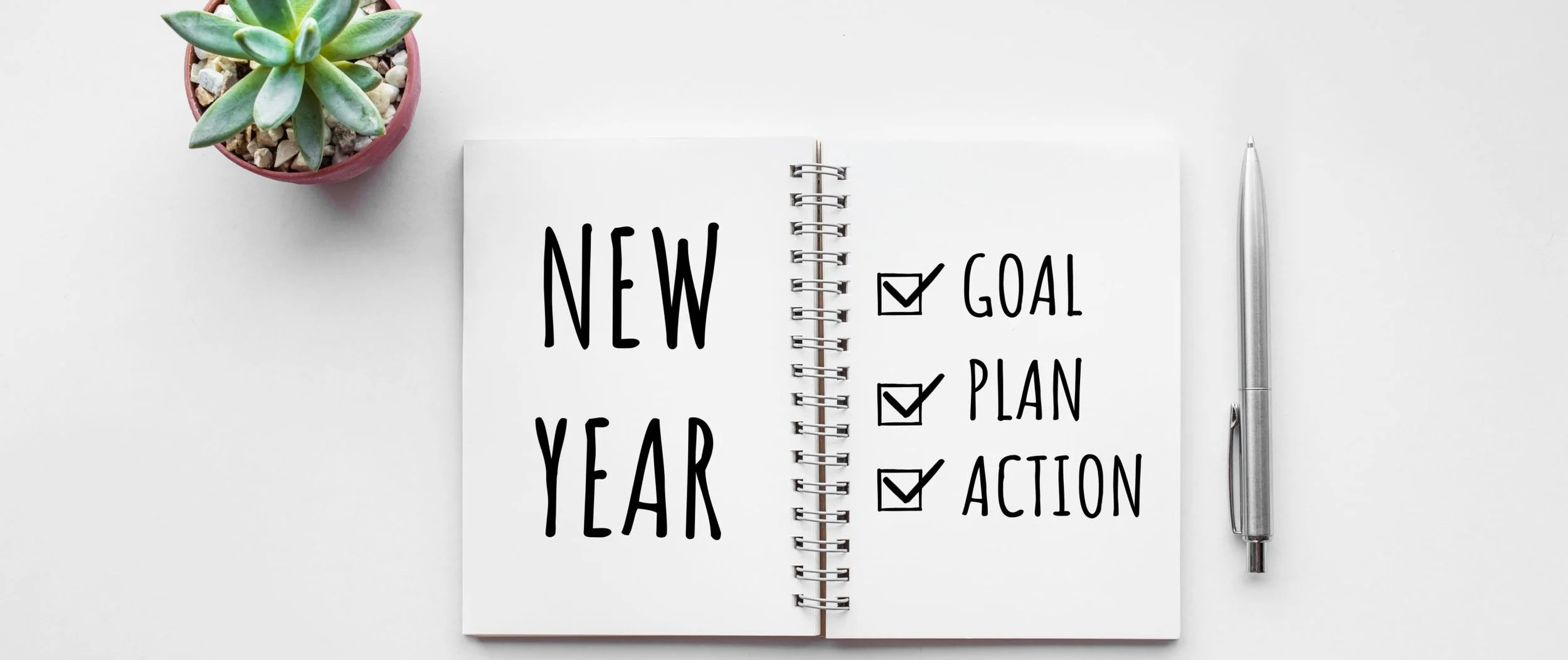Realistic New Year’s Resolutions for Your Mental Health
A recent study on New Year’s resolutions found that about 40% of Americans set resolutions at the start of the year, and less than half are successful after six months. We all want to make positive and impactful changes in our lives, but how can we make the changes last?
Keep them realistic. When setting resolutions, it’s important to take time to reflect on the change you wish to see and what you realistically can do to achieve that change. By taking smaller, more achievable steps toward your goals, there is a greater chance that you will keep them.
This applies to all kinds of resolutions, including mental health. You can help manage your mental health symptoms by taking small steps every day.
Use these self-care strategies from the Mental Health First Aid (MHFA) curriculum to set realistic New Year’s resolutions for your mental health.
1. Make time for self-care.
Brainstorm a list of self-care activities that make you happy and schedule them as part of your daily routine. This could be structured therapy sessions, daily exercise or simply an outdoor walk or time with loved ones. If you’re not sure how to fit self-care into your busy routine, read this article for more tips.
2. Be kind to yourself.
Change can be hard and often takes time. Allow yourself to have feelings and forgive yourself for mistakes. You are here and doing your best, and that’s what counts.
3. Make sleep a priority.
Studies have found that sleep and mental health are connected. In fact, approximately 65 to 90% of people with major depression also experience a sleep problem. This year, try to go to sleep a little bit earlier every night and give your body the rest it needs.
4. Limit your screen time.
Spending too much time on your phone or computer can impact your quality of sleep, your relationships and even lead to feelings of depression and anxiety. Be conscious of how much time you’re spending online and the impact it has on your mental health and make adjustments, if needed. When it comes to social media, use these tips to use the platforms in a positive way.
5. Learn more about mental health.
One of the best ways to improve your mental health is to understand it. There are online resources available that provide information about common mental health and substance use conditions or you can talk to a medical professional to learn more about your specific situation. You can also take a Mental Health First Aid course. MHFA teaches people how to understand, identify and respond to signs and symptoms of common mental health and substance use challenges.
Instead of making sweeping New Year’s resolutions to achieve overnight, create a few realistic goals that will have a long-lasting impact on your mental health and happiness.
You can #BeTheDifference for yourself this year and MHFA is here to help you every step of the way.
How You Can Put Your Mental Health First in the New Year
The new year is quickly approaching. For a lot of people, it’s a time to hit the reset button on fitness and nutrition, let go of negative habits and expand career or travel goals. It’s also a great opportunity to prioritize your mental health.
We know that mental health treatment can be expensive and time-consuming. According to Cohen Veterans Network’s 2018 America’s Mental Health study, one in four Americans has had to choose between getting mental health treatment and paying for daily necessities. Sometimes the help of a mental health professional or treatment is necessary for recovery, but you can help manage your mental health challenges in efficient and low-cost ways.
Use these self-care strategies from the Mental Health First Aid (MHFA) curriculum to put your mental health first in the new year.
Practice self-acceptance. New Year’s resolutions often focus on improving some part of who we are, such as our physical appearance. Instead of trying to change, use the new year as an opportunity to practice self-acceptance and self-love.
Move your body. Exercising for at least 30 minutes every day can help alleviate symptoms of depression and anxiety. Go for a walk, take a fitness class or play a sport with friends and family.
Be grateful. Research shows that practicing gratitude every day can invoke feelings of thankfulness and optimism that make managing challenges easier. Try these simple exercises to be more grateful.
Put yourself first. Remember that self-care isn’t selfish. It’s important to take time every day for yourself and your mental health. This might include enjoying a hot bath, treating yourself to a movie or spending time with family or friends. Do what helps you relax and recharge.
Take Mental Health First Aid. Mental Health First Aid teaches people the signs and symptoms of common mental health challenges and substance use disorders and how to manage them through professional help and self-care. Take a course today and learn more about how you can take care of your mental health in the new year.
Connect With Me
Let's talk about how things are going for you and your thoughts about this article...
Click on this link to schedule a complimentary Virtual Coffee Chat with me so we can talk together.

